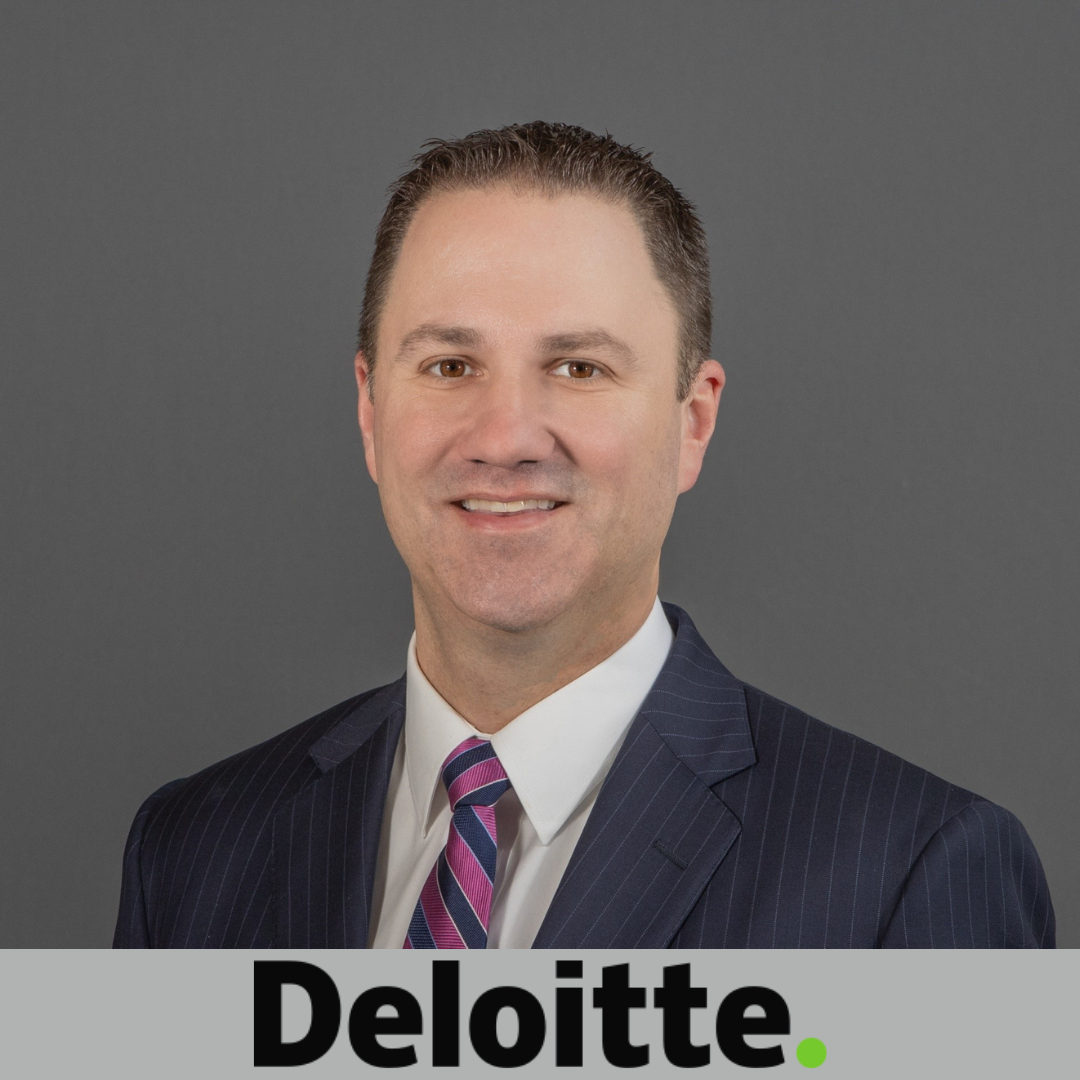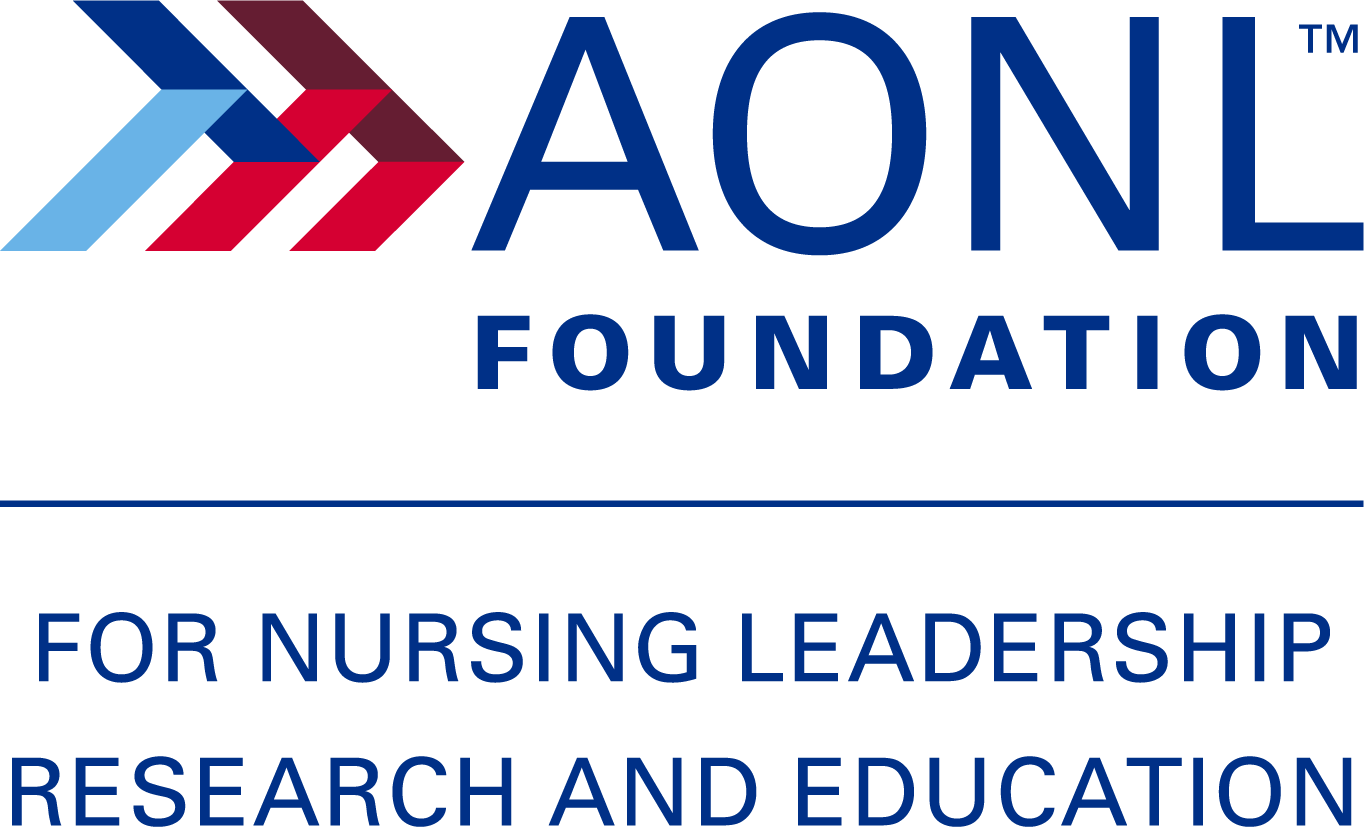Donor Spotlight: Deloitte Consulting
Mike Uhl, Principal at Deloitte Consulting, shares a little about himself, Deloitte’s Healthcare Practice, and Deloitte’s commitment working with AONL Foundation to promote education with the ultimate goal of improving health care.

Tell us a little about your organization.
Deloitte's Healthcare Practice is dedicated to transforming the healthcare industry through innovative solutions and services. Our practice encompasses a wide range of specialization, including strategy, operations, technology, and regulatory compliance, aimed at addressing the complex challenges faced by healthcare organizations.
Key Areas of Focus:
Strategy and Operations:
- Strategic Planning: Assisting healthcare organizations in defining and implementing strategic initiatives to achieve long-term goals.
- Operational Excellence: Streamlining processes to enhance efficiency, reduce costs, and improve patient outcomes.
- Technology and Innovation:
- Digital Transformation: Leveraging cutting-edge technologies such as Artificial Intelligence (AI) and blockchain to modernize healthcare delivery and administration.
- Data Analytics: Utilizing advanced analytics to drive decision-making, improve patient care, and optimize resource allocation.
- Regulatory and Compliance:
- Regulatory Advisory: Providing guidance on navigating the complex regulatory landscape, including HIPAA, FDA, and other healthcare regulations.
- Compliance Programs: Developing and implementing compliance programs to ensure adherence to industry standards and mitigate risks.
- Clinical and Patient Services:
- Patient Experience: Enhancing patient engagement and satisfaction through personalized care and innovative service delivery models.
- Clinical Transformation: Supporting clinical operations with evidence-based practices and integrated care solutions.
- Financial Management:
- Revenue Cycle Management: Optimizing revenue cycle processes to improve financial performance and sustainability.
- Cost Reduction: Identifying and implementing cost-saving measures without compromising quality of care.
Deloitte's Healthcare Practice is committed to driving positive change and delivering measurable results for our clients, ultimately contributing to a healthier world. For more information, please visit our Healthcare Practice page.
How did you get involved with AONL and the AONL Foundation?
My involvement with the American Organization for Nursing Leadership (AONL) began when I was invited to be a speaker for the national virtual symposium “Exploring Artificial Intelligence for Nurse Leaders.” During the symposium, I had the opportunity to share insights on how AI can revolutionize patient care, streamline administrative processes, and enhance decision-making in nursing leadership. This experience allowed me to contribute to the broader healthcare community and verbalize my commitment to advancing the integration of cutting-edge technologies in nursing practice.
What would you like AONL Foundation donors and AONL members to know about you?
My commitment to advancing healthcare innovation and nurse advocacy is deeply rooted in my belief that transformative change is essential for improving patient outcomes and enhancing the nursing profession. As a RN, I am dedicated to exploring and implementing cutting-edge technologies, such as artificial intelligence and telehealth, to streamline clinical workflows, reduce administrative burdens, and empower nurses to focus more on patient care. Additionally, I actively advocate for policies and initiatives that support nurse education, professional development, and well-being. By participating in industry forums, collaborating with healthcare leaders, and mentoring emerging nursing professionals, I strive to foster an environment where innovation thrives and nurses are recognized as pivotal contributors to healthcare excellence. My goal is to drive meaningful advancements that not only elevate the quality of care but also ensure that nurses are equipped, supported, and valued in their critical roles.
What made you decide to get into the health care space, and what is your connection to nurse leaders?
I chose to pursue a career in healthcare because of my deep-seated passion for helping others and my commitment to making a tangible difference in people's lives. As a registered nurse (RN), I have experienced firsthand the profound impact that compassionate, skilled care can have on patients and their families. My journey in healthcare has been driven by a desire to advocate for patient well-being, improve healthcare delivery, and contribute to the advancement of the nursing profession. My connection to nurse leaders is rooted in our shared dedication to excellence in patient care, continuous learning, and leadership. I have always admired the resilience, expertise, and empathy that nurse leaders bring to their roles, and I am committed to collaborating with them to drive positive change and innovation within the healthcare system.
Where do you see health care going in 5 years?
In the next five years, I foresee healthcare undergoing a significant transformation driven by advancements in technology, a shift towards patient-centered care, and an increased focus on preventive medicine. The integration of artificial intelligence and machine learning will likely revolutionize diagnostics, treatment planning, and personalized medicine, enabling more accurate and efficient care delivery. Telehealth and remote monitoring will likely become more prevalent, breaking down geographical barriers and providing patients with greater access to healthcare services. Additionally, there will likely be a stronger emphasis on holistic and preventive approaches, with healthcare systems prioritizing wellness and chronic disease management to improve overall population health. Collaboration across interdisciplinary teams and the use of big data analytics will help further enhance decision-making and outcomes. These changes will likely contribute to a more efficient, accessible, and patient-focused healthcare system.
What do you see as the biggest opportunities in health care right now, from the perspective of your organization?
Here are several critical issues currently facing the healthcare industry, which are shaping the landscape and demanding innovative solutions:
- Workforce Shortages and Burnout:
- Issue: The healthcare sector is experiencing significant workforce shortages, particularly among nurses and primary care physicians. High levels of burnout and stress, exacerbated by the COVID-19 pandemic, are leading to increased turnover and decreased morale.
- Perspective: Addressing these shortages requires a multifaceted approach, including investment in workforce well-being, enhanced training programs, and leveraging technology to reduce administrative burdens.
- Rising Costs and Financial Pressures:
- Issue: Healthcare costs continue to rise, driven by factors such as advanced medical technologies, an aging population, and chronic disease prevalence. Financial pressures are further compounded by reduced reimbursement rates and the shift towards value-based care models.
- Perspective: Organizations should consider adopting cost-containment strategies, optimize operational efficiencies, and explore alternative revenue streams to maintain financial stability while delivering high-quality care.
- Digital Transformation and Technology Integration:
- Issue: The rapid pace of technological advancement presents both opportunities and challenges. Integrating digital health solutions, such as telehealth, electronic health records (EHRs), and artificial intelligence (AI), requires significant investment and change management.
- Perspective: Embracing digital transformation is essential for improving patient outcomes and operational efficiency. Healthcare organizations should focus on strategic implementation, interoperability, and data security to maximize the benefits of technology.
- Regulatory Compliance and Cybersecurity:
- Issue: The regulatory landscape in healthcare is complex and constantly evolving, with stringent requirements for data privacy and security. Cybersecurity threats are increasing, putting sensitive patient information at risk.
- Perspective: Organizations must stay abreast of regulatory changes and invest in advanced security technologies to protect patient data and maintain trust.
- Patient-Centered Care and Health Equity:
- Issue: There is a growing demand for patient-centered care that emphasizes personalized treatment and holistic well-being. Additionally, health disparities and inequities remain significant challenges, with vulnerable populations often receiving suboptimal care.
- Perspective: Healthcare providers should prioritize patient engagement, cultural competence, and social determinants of health to deliver equitable and personalized care. Collaborative efforts and community partnerships are essential to address health disparities.
- Chronic Disease Management and Preventive Care:
- Issue: The prevalence of chronic diseases, such as diabetes and cardiovascular conditions, continues to rise, placing a heavy burden on healthcare systems. Preventive care and early intervention are crucial for managing these conditions effectively.
- Perspective: A shift towards preventive care and population health management is necessary. Healthcare organizations should consider implementing evidence-based practices, leverage data analytics, and promote healthy behaviors to mitigate the impact of chronic diseases.
What do you see as the biggest challenges?
The healthcare industry is currently grappling with significant workforce and financial challenges that threaten its stability and effectiveness. On the workforce front, there is a critical shortage of healthcare professionals, exacerbated by high turnover rates and burnout, particularly among nurses and frontline workers. This shortage is compounded by an aging workforce and the increasing demand for healthcare services due to an aging population. Financially, healthcare organizations are facing mounting pressures from rising operational costs, reduced reimbursement rates, and the need for substantial investments in technology and infrastructure to keep pace with advancements and regulatory requirements. Additionally, the shift towards value-based care models necessitates significant changes in financial planning and resource allocation. These challenges require strategic solutions to ensure a sustainable, resilient, and capable healthcare system that can continue to deliver high-quality care.
What are you reading right now?
I am currently reading "The 5 AM Club" by Robin Sharma.
What do you do to balance work and life?
Balancing work and life is a priority for me, and I achieve this through a variety of enriching activities outside of my professional responsibilities. Spending quality time with my wife is essential, and we make it a point to enjoy regular date nights, explore new hobbies together, and support each other's personal goals. Travel is another passion of ours, providing us with opportunities to unwind, and create lasting memories. Additionally, I find immense joy in being actively involved in my boys' sporting activities, whether it's cheering them on from the sidelines or participating in activities as a parent volunteer. These moments not only strengthen our family bonds but also provide a refreshing break from work.



